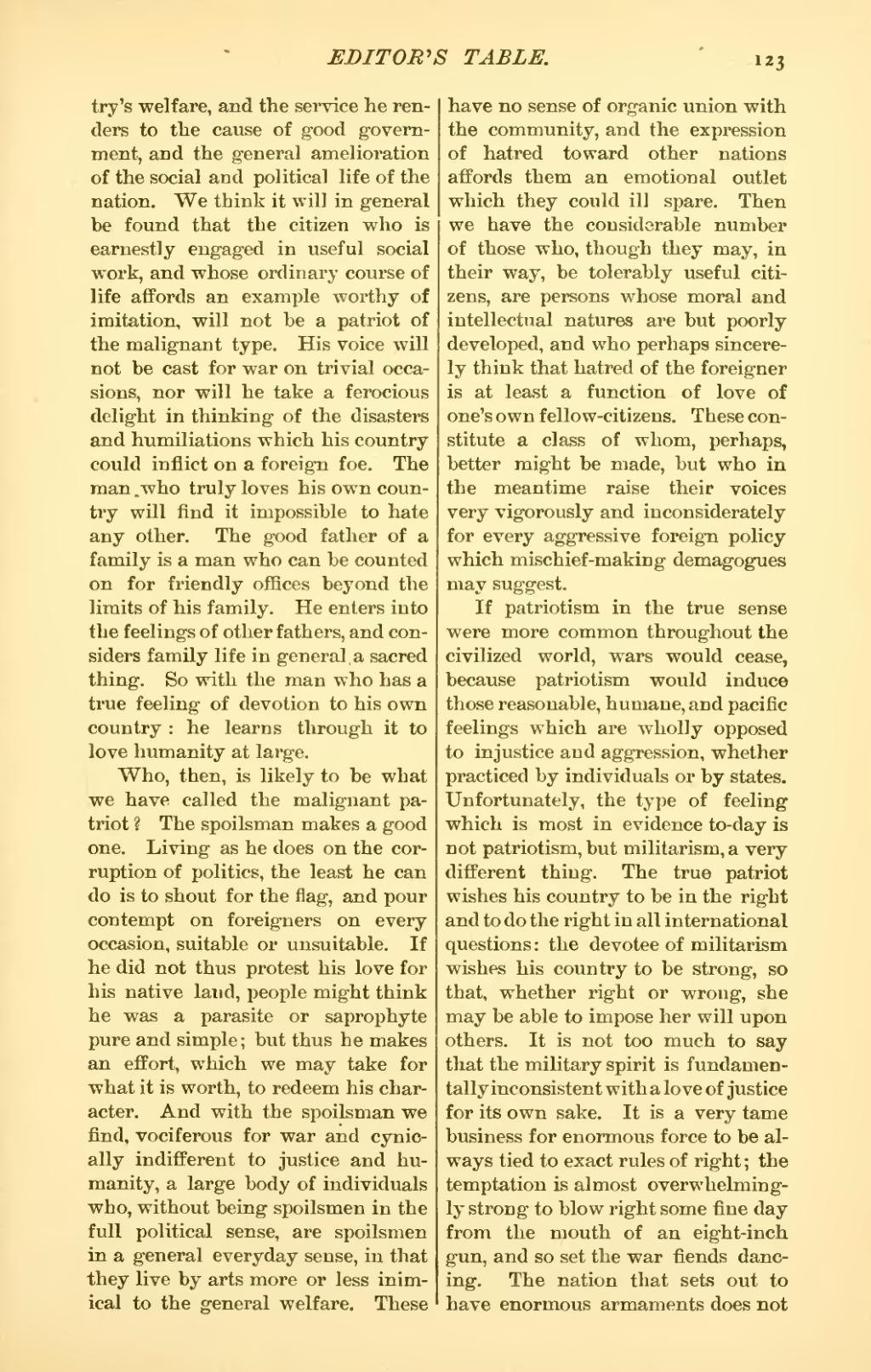try's welfare, and the service he renders to the cause of good government, and the general amelioration of the social and political life of the nation. We think it will in general be found that the citizen who is earnestly engaged in useful social work, and whose ordinary course of life affords an example worthy of imitation, will not be a patriot of the malignant type. His voice will not be cast for war on trivial occasions, nor will he take a ferocious delight in thinking of the disasters and humiliations which his country could inflict on a foreign foe. The man who truly loves his own country will find it impossible to hate any other. The good father of a family is a man who can be counted on for friendly offices beyond the limits of his family. He enters into the feelings of other fathers, and considers family life in general, a sacred thing. So with the man who has a true feeling of devotion to his own country: he learns through it to love humanity at large.
Who, then, is likely to be what we have called the malignant patriot? The spoilsman makes a good one. Living as he does on the corruption of politics, the least he can do is to shout for the flag, and pour contempt on foreigners on every occasion, suitable or unsuitable. If he did not thus protest his love for his native land, people might think he was a parasite or saprophyte pure and simple; but thus he makes an effort, which we may take for what it is worth, to redeem his character. And with the spoilsman we find, vociferous for war and cynically indifferent to justice and humanity, a large body of individuals who, without being spoilsmen in the full political sense, are spoilsmen in a general everyday sense, in that they live by arts more or less inimical to the general welfare. These have no sense of organic union with the community, and the expression of hatred toward other nations affords them an emotional outlet which they could ill spare. Then we have the considerable number of those who, though they may, in their way, be tolerably useful citizens, are persons whose moral and intellectual natures are but poorly developed, and who perhaps sincerely think that hatred of the foreigner is at least a function of love of one's own fellow-citizens. These constitute a class of whom, perhaps, better might be made, but who in the meantime raise their voices very vigorously and inconsiderately for every aggressive foreign policy which mischief-making demagogues may suggest.
If patriotism in the true sense were more common throughout the civilized world, wars would cease, because patriotism would induce those reasonable, humane, and pacific feelings which are wholly opposed to injustice and aggression, whether practiced by individuals or by states. Unfortunately, the type of feeling which is most in evidence to-day is not patriotism, but militarism, a very different thing. The true patriot wishes his country to be in the right and to do the right in all international questions: the devotee of militarism wishes his country to be strong, so that, whether right or wrong, she may be able to impose her will upon others. It is not too much to say that the military spirit is fundamentally inconsistent with a love of justice for its own sake. It is a very tame business for enormous force to be always tied to exact rules of right; the temptation is almost overwhelmingly strong to blow right some fine day from the mouth of an eight-inch gun, and so set the war fiends dancing. The nation that sets out to have enormous armaments does not
